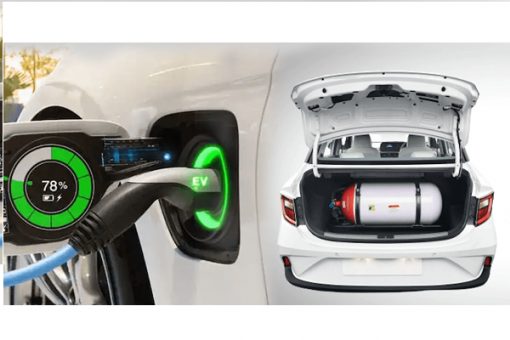The Presidential Initiative on Compressed Natural Gas (P-CNGI) Programme Director, Michael Oluwagbemi, on Thursday, June 27, announced a 50% conversion cost reduction for transporters.
Represented by Tosin Coker during the stakeholders’ event of the P-CNGI and Portland Gas in partnership with NASENI in Abuja, he said the initiative is boosting the sector by supporting the introduction of CNG buses and tricycles (Keke).
The theme of the meeting was: “Driving Sustainable Transportation: Accelerating CNG Adoption in Nigeria.”
He said: “More importantly, in an effort to reduce the cost of public transport, we are catalyzing the sector by supporting the introduction of CNG buses and tricycles (Keke).
“In the next days, you will witness these buses on the streets of Abuja, even as we also start to make conversion kits available at a 50% discount to the transport sector.”
Also speaking, Portland Gas, managing director, Folajimi Mohammed revealed that CNG-powered vehicles reduce fuel costs by 76% in comparison to Premium Motor Spirit (PMS) petrol.
He said, “We are seeing close to about 76% savings in cost alone. So without a doubt, we know that adoption of CNG is almost inevitable.”
He said ordinarily, the conversion cost is N1.2 million, which the vehicle owners can recover in a year.
He allayed fear that the gas is susceptible to catching fire, noting that it is lighter than air its chances of fire outbreak are slim.
“Is it safe? I am sure this is a very pertinent question everybody has asked. Why do I have gas in my truck? What happens in the event of an explosion?
“Let us make this understandable. The component of CNG is methane. CH4 is lighter than air.
“When we mean lighter than air, in the event there is any release of it, it goes and expresses into the air.
“Have there been incidents? Yes, there has been. But the chances are extremely very narrow.”
He said since gas cannot be adulterated it has an excellent combustion compared to any other fuel.
He explained that since the CNG points are still few, the conversion still makes provision for alternative fueling.
Mohammed also said P-CNGI registers the converted vehicle owners as beneficiaries of carbon credit.
Continuing, Oluwagbemi said that over $50 million has been mobilized in the CNG sector since the inception of the P-CNGI, a feat that was not attained in the last 10 years.
“Financing and Enabling Infrastructure: In December 2023, we hosted our first investor forum, which saw tremendous participation from companies now investing in the sector.
“I am pleased to report that well over $50 million has been mobilized directly by the sector since then, more than any amount mobilized in the last ten years combined,” he said.
He said the initiative is also enabling ordinary Nigerians, particularly transport operators, to convert their vehicles.
He recalled that on May 29, 2024, the initiative announced the Conversion Incentive Program, making it easier for Nigerians to adopt CNG.
He noted that the effort is supported by private sector partners, development funds, and banks, all eager to finance this transformative initiative.
The Program Director said developing this industry needs the active participation of the private sector which government cannot do alone.
He added: “However private sector investors need open, fair, transparent and predictable regulations to feel secure and ensure their investments can thrive.
“To that effect, in collaboration with the Standards Organization of Nigeria, we approved over 80 standards and procedures for the CNG conversion industry in March 2024.
“Regulatory bodies, including NMPDRA, SON, FRSC, NADDC, and the National Board of Technical Education, are now working together to create a one-stop shop called the Nigerian Gas Vehicle Monitoring System (NGVMS).
“This streamlined process will ensure safety and efficiency for all stakeholders.
In the last few months, we have worked tirelessly with our core and affiliate partners, including our hosts today, to realize President Bola Ahmed Tinubu’s vision for Nigeria.
“We at Pi-CNG have set an ambitious target of 1 million vehicle conversions by 2027. One thing I know for sure is that as Nigerians, if we are focused and determined, we can achieve anything. Indeed, Nigerians are the most innovative, resilient, adaptable, and capable people anywhere in this world.
“It is time for us to use our natural resources (our human resources for good) and our gas resources for the greater good, to drive our transportation sector and economy forward.”
END.

